On the sidelines of a pricier Kentucky Derby, the race is on for small-dollar spending
The Kentucky Derby, long known as “the most exciting two minutes in sports,” may be on its way to becoming some of the most expensive two minutes in sports.
Ticket prices for the iconic horse race have more than tripled over the past decade, from an average of $378 in 2014 to $1,254 this year on the resale market as of April 22, according to the booking platform TicketSmarter.
That could reflect strong demand for the race’s 150th anniversary, but it’s also partly because Louisville’s Churchill Downs Racetrack has worked to lure spendier customers through its gates. The facility has shaken up its seating and poured $200 million into a renovation that debuts at this year’s Derby and features, among other upgrades, “a new luxury equine-focused dining experience.”
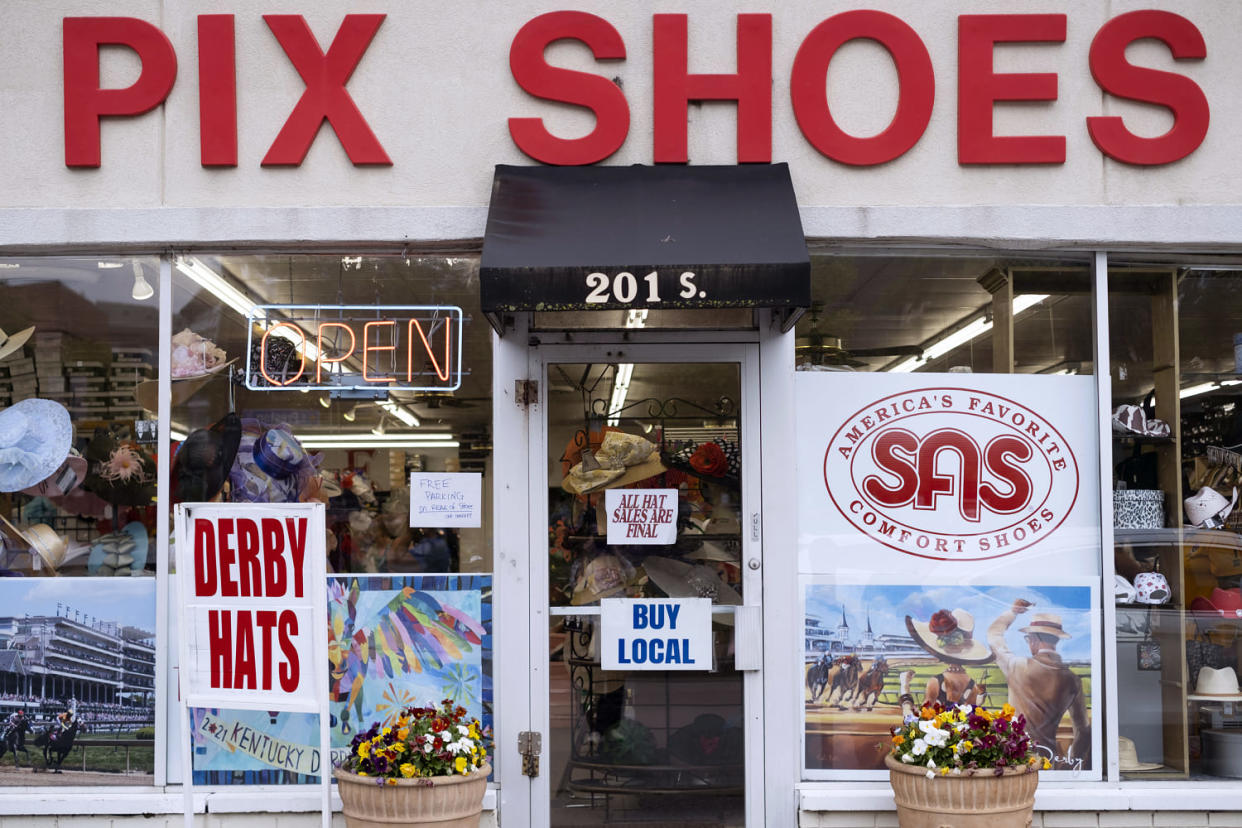
“We’ve had pushback from locals about being priced out,” said Thomas Lambert, an economist who studies the equine industry at the University of Louisville’s College of Business, but he added that catering to high rollers tends to be good business across the gaming and hospitality industry.Not only are wealthier attendees more likely to gamble “a decent amount,” Lambert said, but “just to say that they have been to the Derby, they will pay extreme prices because of their disposable personal income.”
While the Downs sells one-day general admission infield tickets starting at $275, reserved seating can climb to four figures, with the most exclusive private suites going for $295,000 for multi-year bookings. Much of the reserved seating is now sold only as part of two-day all-inclusive passes for both the Kentucky Derby and the Kentucky Oaks, the sister race held the day before.
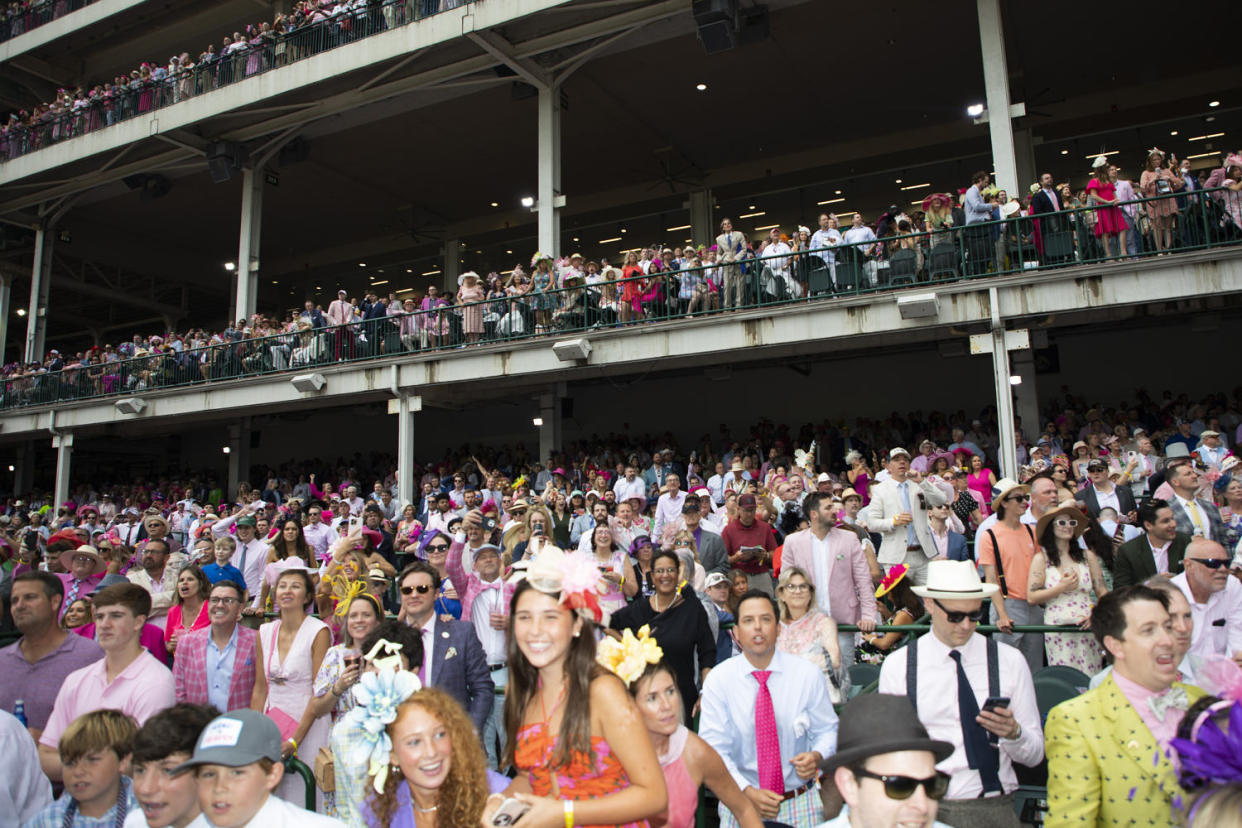
So far, the premium push looks to be paying off. “Ticket sales, including throughout our new seating areas, have exceeded our expectations,” Churchill Downs CEO William Carstanjen told investors last week. The company didn’t comment.Outside the Downs, the annual flurry of business activity is chasing a less high-end Derby dollar that has been stretched by inflation.
Prices at Plehn’s Bakery, which turns 100 this year, are up about 5% since 2023, said co-owner Jennifer Brownlee, but there’s no premium charged during Derby Week, when business usually doubles.
“Our costs have gone up more than that, but we worry about taking too big of a jump because we’re not a necessity,” she said.
In addition to supplying the buns used by many local caterers, Plehn’s sells a slew of Derby-themed desserts — from cookies shaped like horse heads to cakes topped with little plastic horses.
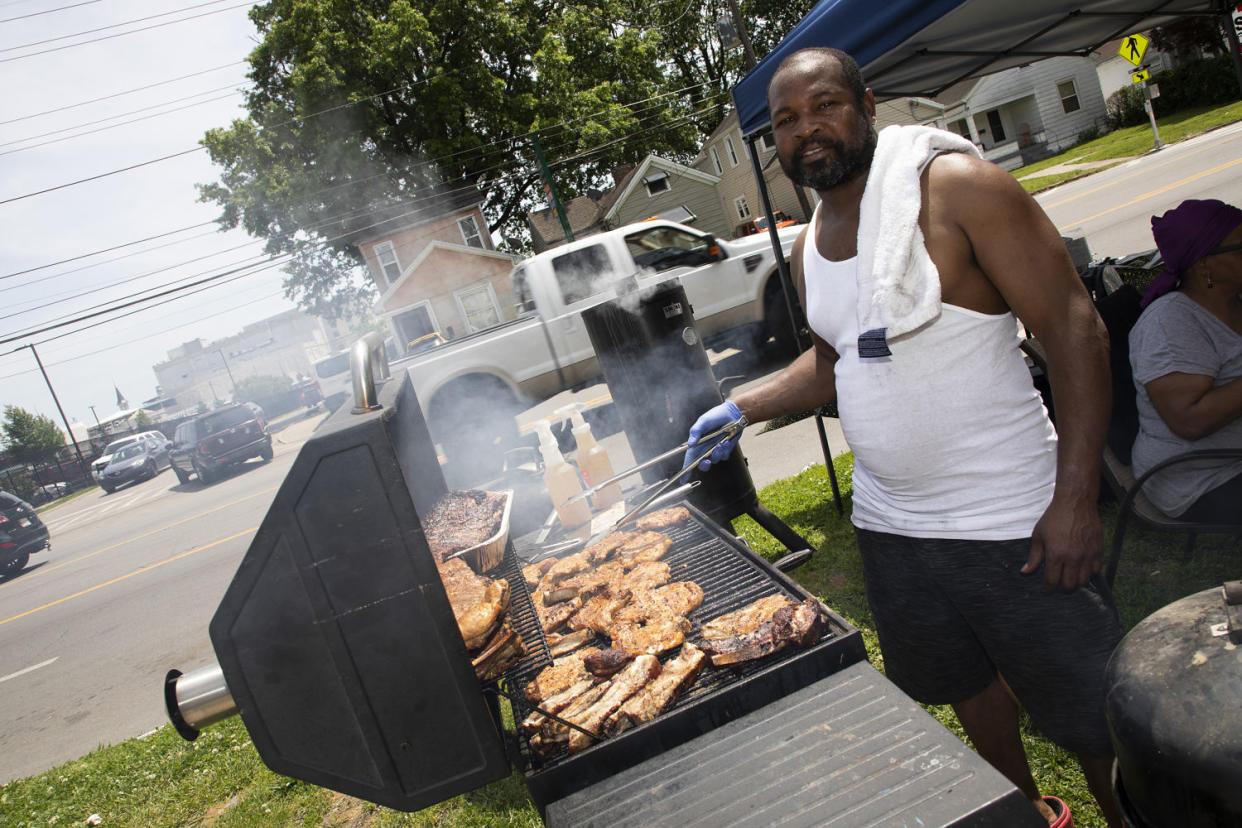
In the central region of the South that includes Kentucky, inflation hit an annual rate of 4% in March, hotter than the 3.5% national average. Wiltshire Pantry owner Susan Hershberg said price pressures in Louisville have been “brutal,” but she suspects the Downs’ expanded all-inclusive offerings have weighed on her business, too.While she used to field 400 to 500 boxed lunch orders each day during Derby Week, “this year I only have orders for several hundred boxes, and some people are taking them to Derby parties, not to the track,” she said.
Prices are staying put all the same. “The people who buy the boxed lunches are my regular customers,” Hershberg said, “and right now we’re eating the difference, because there’s only so much sticker-price shock people can handle.”Carol Hampton, who owns Pix Shoes Louisville, said her costs are up as well. She added that rival milliners buy her hats, fascinators and other accessories and sell them at a markup, but moving large volumes helps her keep prices down.
“People pick and choose what they want to do with their money,” Hampton said. “They want to look nice, they want to shine, and I help them do that. I just don’t rob them.”
She estimated 150 customers visited the 50-year-old downtown shop on Thursday alone and expects to sell over 8,000 pieces of fancy headgear by the end of the weekend.
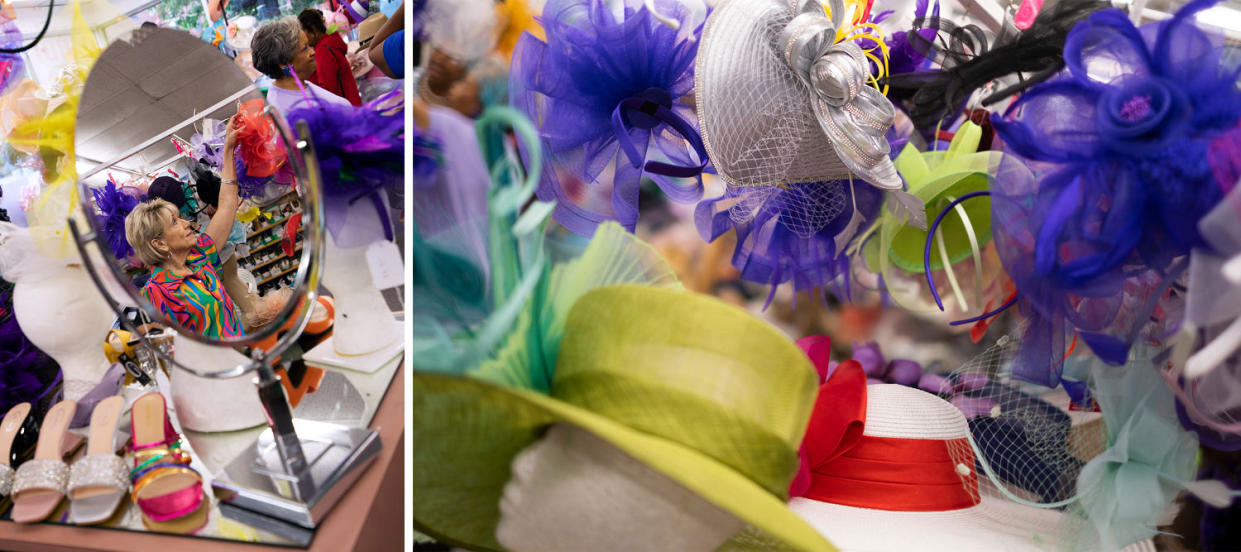
The Derby is forecast to deliver a more than $405 million boost to the local economy, a Louisville Tourism spokesperson said. While that would be a jump from around $402 million in 2023, attendance at the race itself is still on a post-pandemic climb back toward its record of 170,000 in 2015, when that year’s eventual Triple Crown winner, American Pharoah, was running.More than 150,000 people are expected at the Downs this year, after a dozen horses died following injuries around the 2023 Derby. While investigators didn’t identify a single cause, the Louisville racetrack has stepped up its safety protocols amid heightened scrutiny of the sport’s practices.
Attendance at the other two legs of the Triple Crown, the Preakness Stakes in Baltimore and the Belmont Stakes in Elmont, New York, also have yet to return to pre-pandemic levels (though Belmont Park lowered its capacity cap in 2022).Lambert, the economist, chalked up some of the Derby’s resilience to its distinctive fanfare: “The equestrian lifestyle, the Southern charms, the hats, the mint juleps, etc. — it’s all turned on dramatically to get the tourists here.”
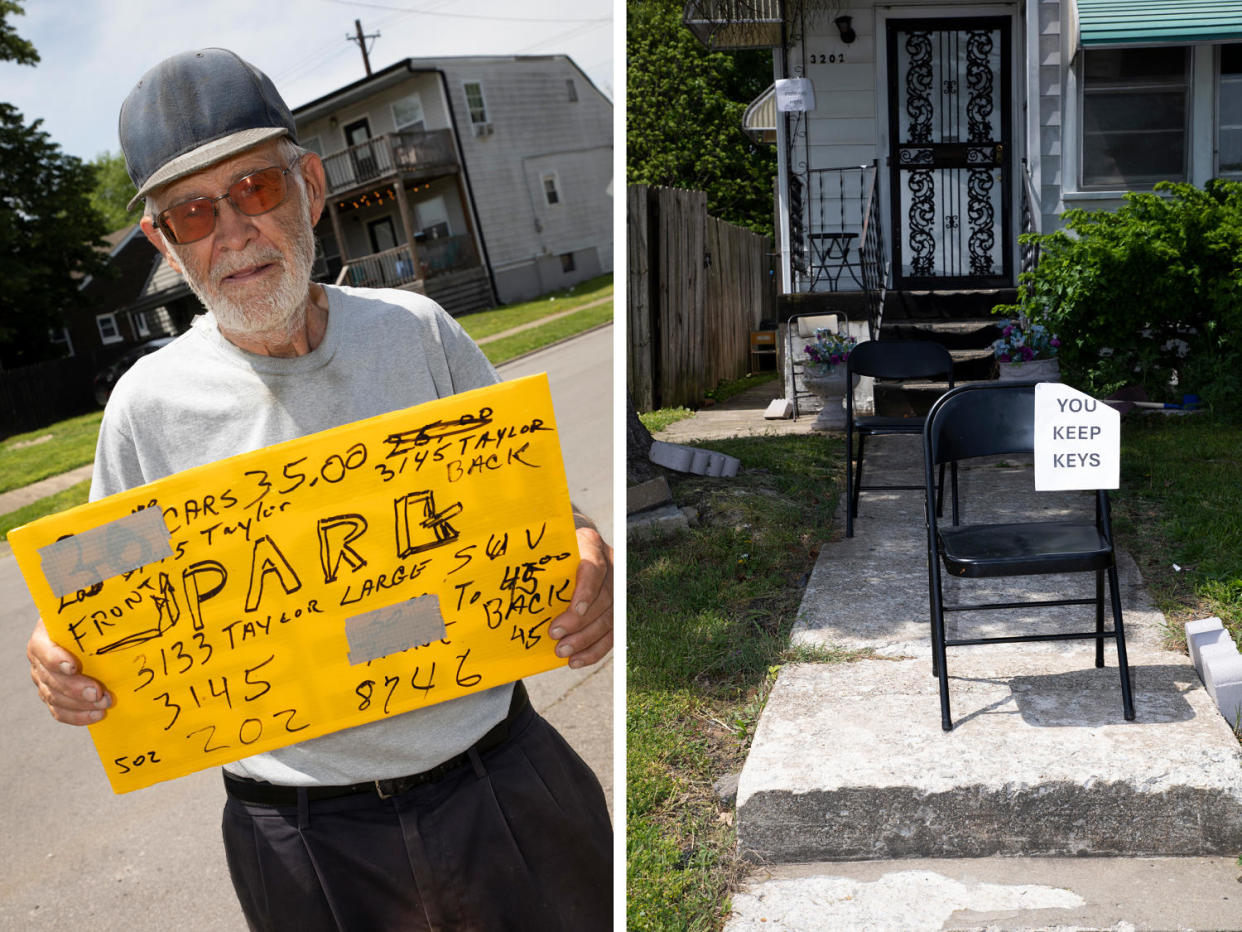
And tourists need places to park. Like many of his neighbors who live down the street from the track, 39-year-old Daniel Harvey is offering parking on his property during Derby weekend.“It’s my fourth year doing this,” said Harvey, who’s been charging $40 on Friday and Saturday “It’s fairly easy work and an opportunity to make money.” He can fit about 11 cars on his property, which he advertised on Facebook Marketplace, with discounts for booking a spot early.
Aileen Nova Jackson, who will turn 89 in a few weeks and has lived in the neighborhood for 55 years, has been at it much longer than Harvey. She has room for about 15 cars and people who come back each year. She takes reservations and cash, but no credit cards or checks.
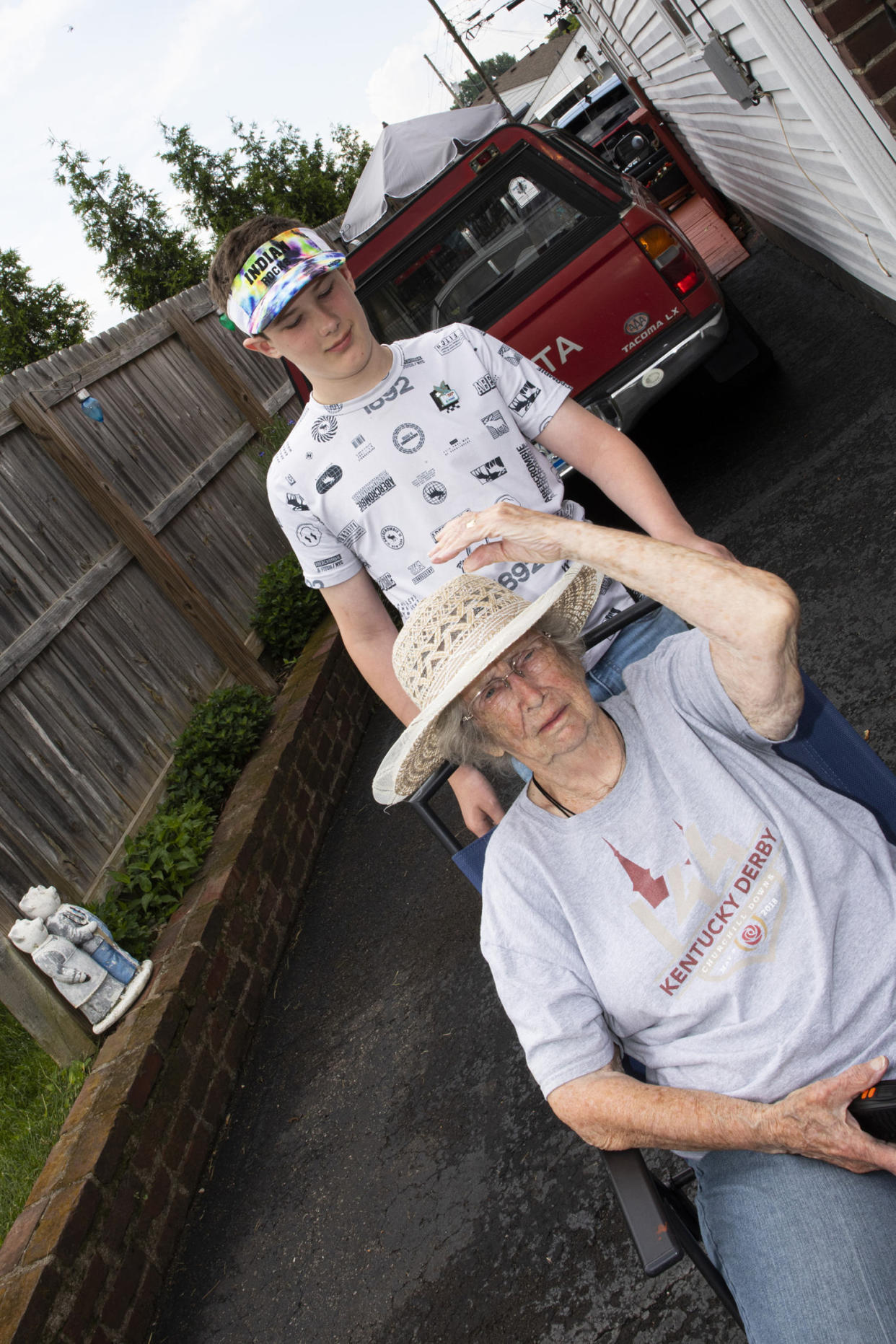
These days Jackson lets her son do the parking while she sits in a chair collecting money and chatting with guests. She is charging $80 for cars, $100 for SUVs and $300 for buses and RVs, adding that her prices have risen this year, citing inflation.“When I started it was $2 a car,” Jackson said.
After all these years, though, she’s never been to a Derby.
